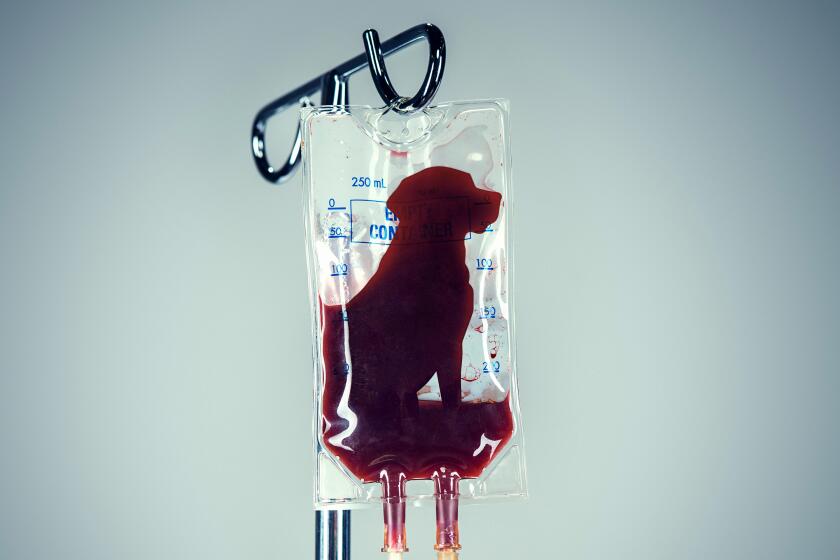Kim Christensen, reporter known for ‘righting wrongs and exposing truth,’ dead at 71

When he joined the Los Angeles Times in 2005, investigative reporter Kim Christensen had already notched two Pulitzer Prizes working on teams that uncovered fraudulent fertility practices at a leading research university and abuse of foreign nationals by the U.S. Immigration and Naturalization Service.
Seventeen years later, when Christensen retired, many of his Times colleagues still did not know that.
“Most people had no idea he had won two Pulitzer Prizes,” said former Times investigations editor Julie Marquis. “He didn’t talk about it.”
But Marquis said she knew his reporting prowess firsthand from competing with him on the fertility story.
“He trounced us day after day after day,” she said. “It wasn’t until later I found out what a great human being he was.”
Christensen, a dogged reporter beloved by colleagues for his wry humor, collegiality, graceful writing and incisive mind, but above all his humility, died of cancer Monday at his home in Long Beach. He was 71.
At The Times, Christensen worked both solo and with other reporters to expose abuses in the hospice industry, the failure of the Medical Board of California to discipline negligent doctors and the lead poisoning spread by a battery recycling plant.
An Ohio native, Christensen began his career at his hometown Dayton Daily News, where he also met his future wife, Chris. He joined the Orange County Register in the mid-1980s and moved to the Oregonian in 1999.
After a brief, and unhappy, stint as a private investigator for a global company, he returned to journalism at The Times.
“He was one of the best journalists in the country,” said Jack Leonard, former Times investigations editor, who led several of Christensen’s projects. “But you would never know that from talking to him. You had to see that from working with him.”
Along with his impact in public affairs, Christensen left a legacy of enduring friendships in newsrooms around the country.
“If he really likes you and gets along, you’re in his life forever,” his widow, Chris, said.
“I did a ton of stories with him in the early 2010s, and he made me a better reporter and a better person,” said Times reporter Jessica Garrison. “And he made me laugh,” once — and only once — turning his honors into the joke “that he would go see his sister every time he went to pick up a Pulitzer.”
Brent Walth, one of three other reporters who worked with Christensen on the Oregonian immigration series that won the 2001 Pulitzer Prize, said he was “the rare investigative reporter who was truly a likable soul.”
“He did not like attention drawn to him,” Walth said. “He saw the work that he did as a duty and didn’t feel he deserved any special praise or attention for having done the work.”
When the Oregonian’s editors rattled the reporters with a last-minute demand for an over-arching wrap-up of their extensive reporting, Christensen did not flinch.
“Kim doesn’t say a word,’” Walth recalled. “He sits down at his terminal. In 45 minutes he knocks out a pitch-perfect, complete, thorough, heartbreaking description of what our stories found. He knew it in his head. He knew it in his heart. It was breathtaking. I’ll never forget it.”
It began: “Murder suspects have more rights than many people who encounter the U.S. Immigration and Naturalization Service.”
In reminiscing with friends about Christensen, one theme repeatedly came up, Walth said:
“Make sure you tell people how funny he was.”
Christensen was also a key player in The Times investigation of corruption in the small city of Bell, which earned a Pulitzer Prize in 2010.
Some of Christensen’s most formidable work at The Times, reported with colleague Jason Felch, documented how the Boy Scouts of America covered up decades of sexual abuse.
In its year-long examination, The Times documented hundreds of cases in which the Boy Scouts failed to report accusations to authorities, hid allegations from parents and the public, or urged admitted abusers to quietly resign — and then helped cover their tracks with bogus reasons for their departures.
Christensen continued reporting on the hundreds of lawsuits that arose in the wake of their reporting and the Boy Scouts’ subsequent bankruptcy.
After retiring from The Times in 2022, he developed the material into a book, “On My Honor,” that he turned in to his publisher in December, shortly before he was diagnosed with cancer.
“His forthcoming book about the secret history of the Boy Scouts of America is a devastating indictment of that organization’s refusal to address a chronic problem of sexual abuse in its ranks,” said Martin J. Smith, a reporter who worked with Christensen at the Orange County Register. “Kim left us that remarkable account as the capstone of an incredible journalistic legacy.”
Smith, who bonded with Christensen as the “Lonely Guys in a Strange Land” when both started at the Register while Smith’s wife and Christensen’s future wife remained temporarily in the Midwest, remembered him as a reporter whose “superpower” was his facility for asking uncomfortable questions.
“If you go back through the fertility series, Kim and his fellow reporters had the impossible task of telling women who had had their eggs stolen and implanted in other women that they had children they didn’t know about,” Smith wrote in an email. “Try to imagine the pressure of that. Try to imagine the humanity required of the bearer of such news.”
“Kim was focused entirely on righting wrongs and exposing truth, no matter how difficult or unpleasant,” Smith said.
Walth, who now teaches journalism at the University of Oregon, said Christensen had his own take on the adage that journalists should write for their readers.
He wrote for “people whose lives you can help — people who are facing injustice and they may never read your story,” Walth said.
In addition to his wife, Chris, Christensen is survived by children Gayle Rea and Michael Davis, grandchildren Amanda and Nicholas Rea and two great-grandsons.
More to Read
Sign up for Essential California
The most important California stories and recommendations in your inbox every morning.
You may occasionally receive promotional content from the Los Angeles Times.











